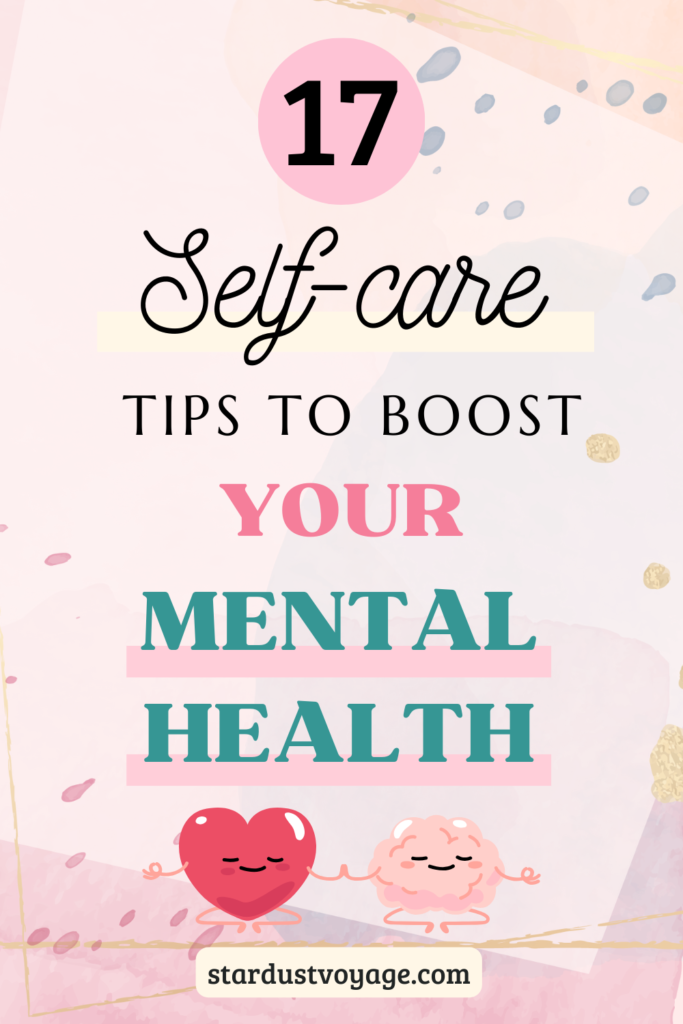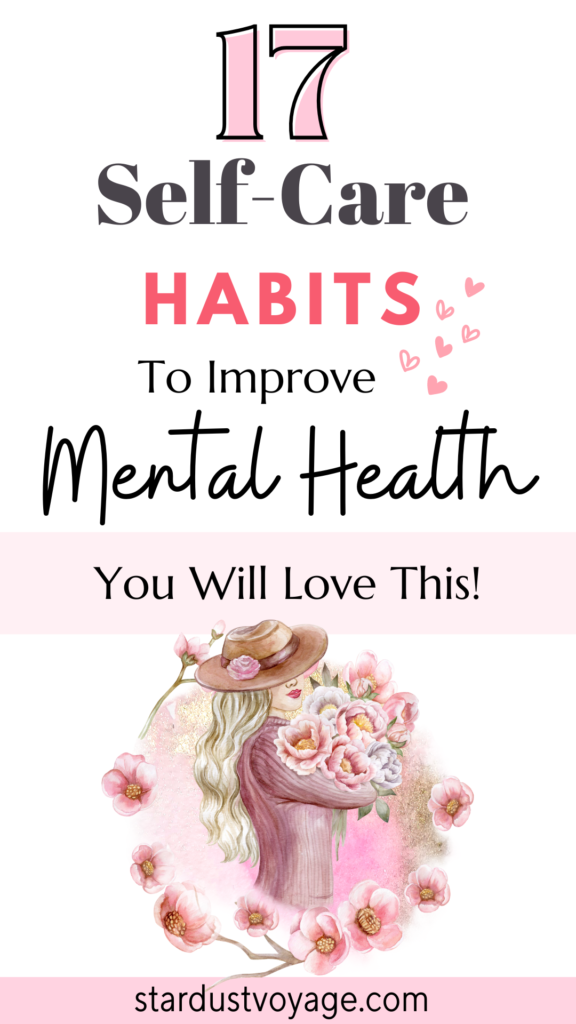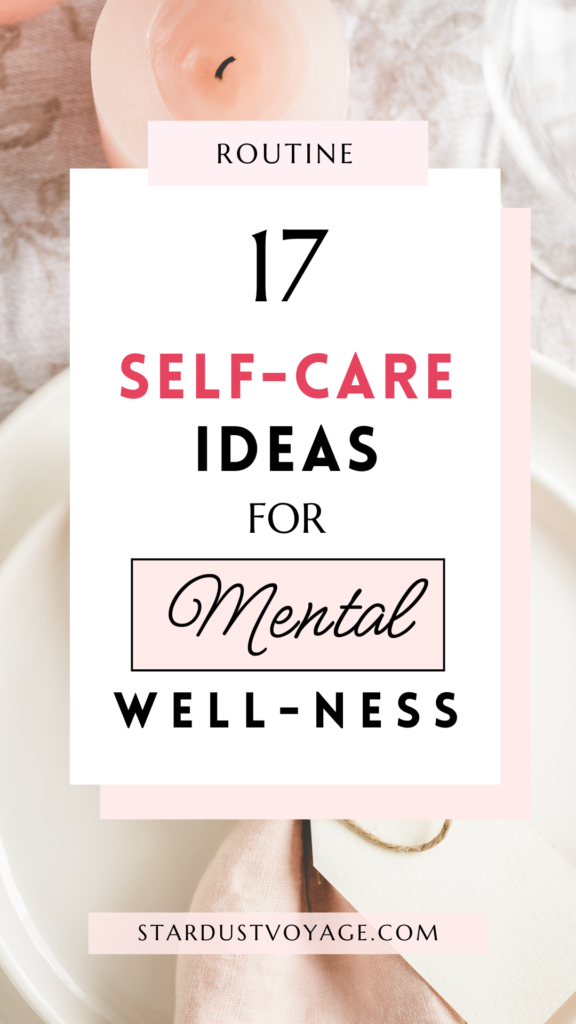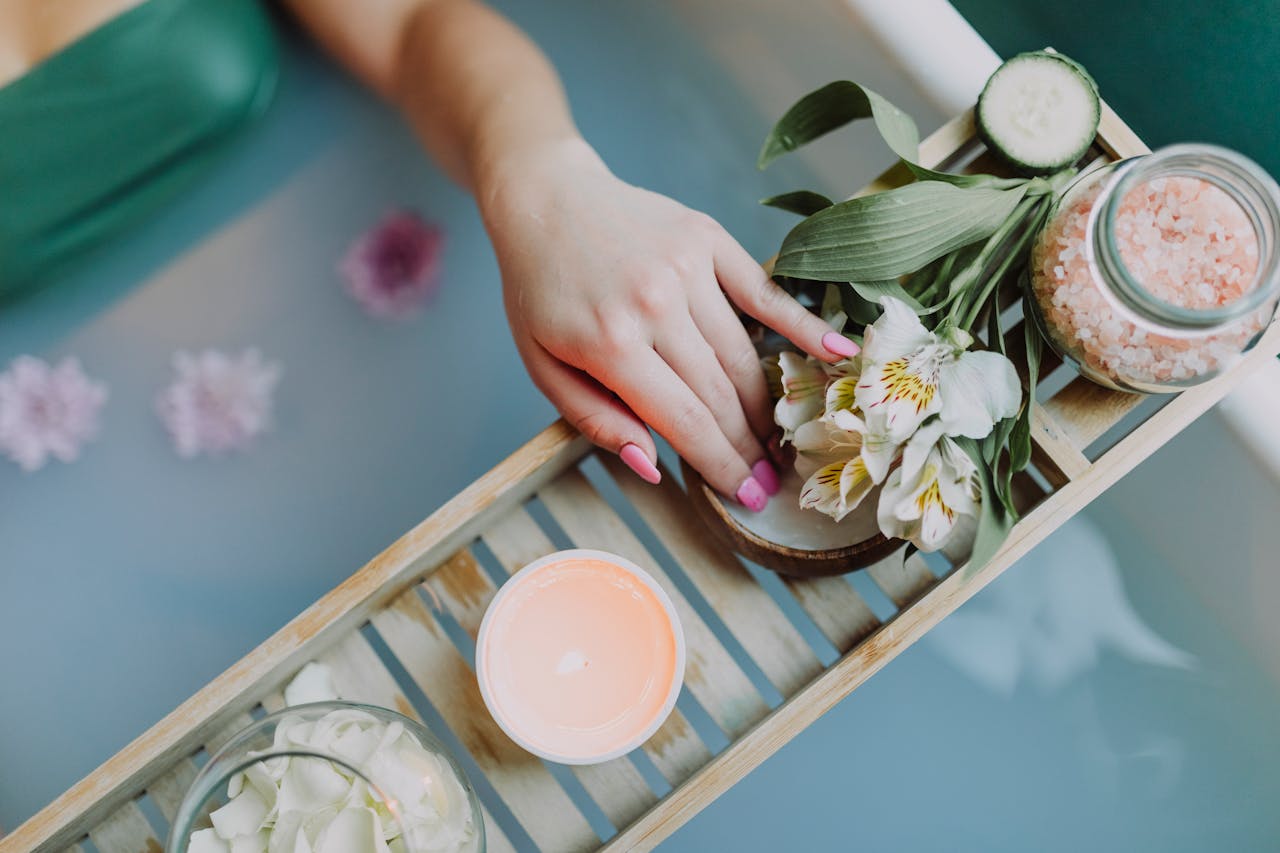You deserve to prioritize your mental health by incorporating self-care activities into your routine. In this post, I’ll share with you 17 practical and effective ways to boost your mental well-being and nurture your soul. Bear in mind, that taking care of yourself is not selfish; it is necessary for your overall health and happiness. So, let’s dive in and discover the power of self-care together.

Building a Foundation for Self-Care
1. Identifying Your Mental Health Needs
Before submerging into self-care activities, it’s crucial to take a step back and identify your mental health needs. This involves reflecting on your emotions, triggers, and stressors. By understanding what affects your mental well-being, you can tailor your self-care routine to address those specific areas of concern. Whether it’s anxiety, burnout, or low self-esteem, acknowledging your needs is the first step towards creating a healthier mindset.
2. Creating a Self-Care Routine
Creating a self-care routine is important for maintaining your mental health. Start by incorporating activities that bring you joy, peace, and relaxation into your daily or weekly schedule. This could include mindfulness practices, exercise, journaling, or spending time in nature. Consistency is key when it comes to self-care, so make sure to prioritize these activities just like you would any other appointment. By committing to a routine that nourishes your mind and soul, you’ll be better equipped to handle life’s challenges with resilience and grace.
Identifying your mental health needs and creating a self-care routine are crucial steps in building a strong foundation for your well-being. By tuning into your emotions and establishing healthy habits, you can cultivate a more balanced and fulfilling life. Keep in mind, that self-care is not indulgent or selfish – it’s a necessary practice that allows you to show up as your best self for yourself and those around you.
Mindfulness and Meditation
Little did I know that incorporating mindfulness and meditation into my daily routine would have such a profound impact on my mental health. These practices have helped me cultivate a sense of inner peace, reduce stress, and improve my overall well-being.
3. Starting a Meditation Practice
For me, starting a meditation practice was daunting at first. However, once I committed to setting aside just a few minutes each day to sit quietly and focus on my breath, I began to experience the benefits almost immediately. Whether you’re a beginner or have some experience with meditation, finding a quiet space and using guided meditation apps can be incredibly helpful in establishing a regular practice.
4. Mindfulness Exercises for Daily Life
Meditation is not just about sitting in silence; it’s also about incorporating mindfulness into your daily activities. Being present at the moment, whether you’re eating, walking, or even washing dishes, can help you stay grounded and reduce feelings of anxiety and overwhelm. For instance, try focusing on the sensations you experience while eating a meal or the sounds of nature during a walk. These simple practices can have a profound impact on your overall well-being.

5. Guided Meditation for Anxiety and Stress
Stress and anxiety can often feel overwhelming, making it challenging to find a sense of calm. Guided meditations specifically tailored to reduce anxiety and stress can be incredibly helpful in these moments. These meditations often focus on deep breathing, body relaxation, and positive affirmations to help you combat feelings of unease and tension. By incorporating these guided practices into your daily routine, you can learn to better manage stress and find moments of peace amid the chaos.
Mindfulness and meditation are powerful tools that can help you navigate the challenges of daily life with more ease and grace. Whether you’re just starting or looking to deepen your practice, incorporating these activities into your self-care routine can have a lasting impact on your mental health and well-being.
Physical Self-Care
6. Exercise for Mental Well-being
With our hectic schedules and constant daily stressors, finding time to exercise may seem daunting. However, incorporating physical activity into your routine can significantly boost your mental health. Exercise releases endorphins, which are known as the body’s natural mood lifters. Whether it’s going for a run, practicing yoga, or taking a dance class, moving your body can help reduce anxiety, improve your mood, and increase your overall sense of well-being.
7. Healthy Eating Habits for Mental Health
Eating a balanced diet plays a crucial role in supporting your mental health. When I prioritize nutritious foods like fruits, vegetables, whole grains, and lean proteins, I feel more energized and focused. These foods provide crucial nutrients that support brain function and can help regulate mood. By nourishing your body with the right foods, you are giving yourself the foundation for optimal mental well-being.
Wellbeing is closely linked to what you put into your body. Foods high in sugar and processed ingredients may provide temporary satisfaction, but they can lead to energy crashes and mood swings. By choosing whole, nutrient-dense foods, you are giving your body the support it needs to function at its best, both physically and mentally.
Balanced meal:
8. Getting Enough Sleep for Better Mental Health
A crucial aspect of physical self-care is ensuring you get enough restorative sleep. When I prioritize a consistent sleep schedule and create a relaxing bedtime routine, I notice a significant improvement in my mood and cognitive function. Sleep is crucial for processing emotions, consolidating memories, and restoring the body. By making sleep a priority, you are allowing your brain to recharge and support your mental well-being.
Another crucial aspect of getting enough sleep for better mental health is creating a sleep-conducive environment. I find that dimming the lights, limiting screen time before bed, and creating a comfortable sleep space can significantly improve the quality of my sleep. By making small adjustments to your sleep habits and environment, you can support your mental health and overall well-being.
Creative Expression
Allowing yourself to engage in creative activities can be a powerful tool for improving your mental health. Whether it’s through journaling, art therapy, or writing, creative expression can help you process your emotions and boost your overall well-being.
9. Journaling for Mental Health
Health I find that journaling is a therapeutic practice that allows me to unload my thoughts and feelings onto paper. By writing down my emotions, fears, and struggles, I can gain clarity and a better understanding of my inner world. Journaling can also serve as a safe space for self-reflection and problem-solving, helping me navigate through life’s challenges with more ease.
10. Art Therapy for Emotional Expression
Mental Engaging in art therapy can be a powerful way to express emotions that are hard to put into words. Through various art forms such as painting, drawing, or sculpting, you can explore your feelings and release pent-up emotions healthily and creatively. Art therapy is not about creating a masterpiece; it’s about the process of creation and the emotional release that comes with it. Journaling Art therapy can offer a non-verbal way to communicate and process difficult emotions, making it a valuable tool for anyone looking to improve their mental health through creative expression.
11. Writing for Self-Discovery
Writing Writing can be a powerful tool for self-discovery and personal growth. By putting your thoughts and feelings into words, you can gain insights into your beliefs, values, and aspirations. Writing prompts, such as reflection questions or creative exercises, can help you examine deeper into your subconscious and uncover hidden truths about yourself. For instance, setting aside dedicated time each day to write in a journal or work on a creative writing project can help you tap into your innermost thoughts and emotions, ultimately leading to a greater sense of self-awareness and emotional well-being.

Social Connection and Community
After taking care of my physical well-being, I know that fostering social connections and being part of a supportive community are crucial for my mental health. Here are some ways I prioritize social connection and community in my self-care routine:
12. Building a Support Network
One of the most critical aspects of maintaining good mental health is having a support network. Whether it’s close friends, family members, or a therapist, having people you can turn to in times of need can make a world of difference. Cultivating these relationships through open communication, trust, and vulnerability can strengthen your support network and provide you with the emotional backing you need during challenging times.
13. Joining a Mental Health Community
The power of community is undeniable when it comes to mental health. Whether it’s joining a local support group, participating in online forums, or attending mental health workshops, being part of a community that understands and validates your experiences can be incredibly therapeutic. Connecting with others who are on a similar journey can offer insights, empathy, and a sense of belonging that is invaluable for your well-being. The sense of belonging and understanding that comes from being part of a mental health community can be truly transformative. Knowing that you are not alone in your struggles and having a safe space to share your thoughts and feelings without judgment can be incredibly healing.
14. Volunteering for Social Connection
To truly experience the benefits of social connection, consider volunteering for a cause that is meaningful to you. Not only does volunteering allow you to give back to the community, but it also provides opportunities to meet like-minded individuals and forge new connections. Engaging in volunteer work can boost your mood, reduce feelings of isolation, and enhance your overall sense of well-being.
Building connections through volunteering can be a rewarding experience that not only benefits those you are helping but also nourishes your mental health. It allows you to make a positive impact on the world while simultaneously reaping the emotional rewards of social connection and community involvement. Joining a cause or organization that aligns with your values and interests can help you connect with others who share your passion and commitment to making a difference. Whether it’s volunteering at a local shelter, participating in environmental clean-up efforts, or lending a hand at a community event, the social connections you make through volunteering can be a source of support and fulfillment in your life.
Relaxation and Leisure
15. Taking Breaks and Practicing Self-Compassion
To truly take care of myself, I make sure to prioritize taking breaks and practicing self-compassion. Sometimes, we can get so caught up in our daily responsibilities and stressors that we forget to give ourselves the necessary time to rest and recharge. When I start feeling overwhelmed, I remind myself that it’s okay to take a step back and take a break. Giving myself permission to relax and unwind allows me to come back feeling refreshed and ready to tackle whatever challenges come my way.
16. Engaging in Hobbies for Mental Health
Self-compassion means I understand the importance of engaging in hobbies that bring me joy and fulfillment. Whether it’s painting, gardening, or dancing, dedicating time to activities that I love helps me de-stress and refocus my mind. Engaging in hobbies allows me to tap into my creativity and passion, fostering a positive mental state and a sense of accomplishment. It’s not about being perfect at these hobbies but rather about enjoying the process and giving myself the gift of self-expression.
Understanding the value of hobbies in promoting mental health is crucial. Engaging in activities that spark joy and passion can significantly reduce stress levels and improve overall well-being. By immersing myself in hobbies that bring me happiness, I can cultivate a sense of balance in my life and prioritize self-care.
17. Reading for Relaxation and Escapism
Any free moment I have, I love to escape into the world of books. Reading for relaxation and escapism is a wonderful way to unwind and let go of the day’s tensions. Whether I’m exploring a fictional universe or plunging into a self-help book, getting lost in the pages allows me to take a mental break and recharge my mind. It’s a simple yet effective way to prioritize my mental health and practice self-care.
A good book has the power to transport you to different worlds and perspectives, offering a much-needed break from reality. Reading not only relaxes the mind but also stimulates creativity and critical thinking. It’s a form of self-care that allows me to broaden my horizons and discover new ideas, all while taking a moment to unwind and destress.

Final Words
From above, it is evident that taking care of our mental health is crucial for overall well-being. By incorporating these self-care activities into your daily routine, you can boost your mental health and cultivate a sense of inner peace and resilience. Bear in mind, that self-care is not selfish; it is a necessary practice to help you show up as your best self in all areas of life.
So, I encourage you to prioritize your mental health by making time for self-care each day. Whether it’s practicing gratitude, engaging in physical activity, or setting boundaries, find what works best for you and make it a priority. By taking care of yourself, you are better equipped to handle life’s challenges and thrive in all aspects of your life.







